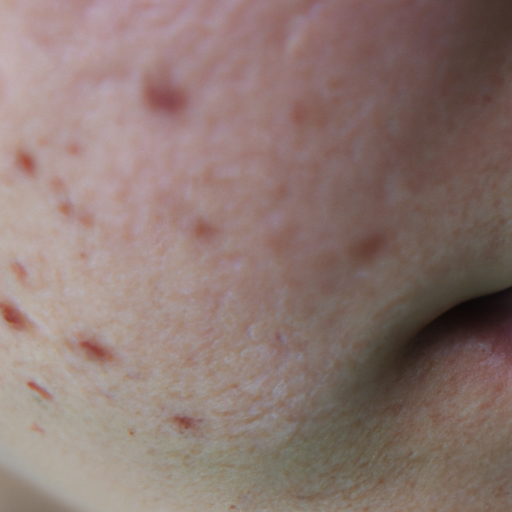As a dermatologist, I have seen countless patients struggling with acne, a common skin condition that affects millions of people worldwide. Acne can be a source of embarrassment and frustration, often leading to low self-esteem and even depression in severe cases. However, the good news is that today, we have a plethora of effective acne treatments available. This article aims to unveil the most effective acne cures of today, helping you banish those blemishes for good.
Firstly, it’s essential to understand that acne is not just a cosmetic issue; it’s a medical condition that requires professional treatment. Acne occurs when the pores of your skin become blocked with oil, dead skin cells, and bacteria. This blockage leads to inflammation and the formation of pimples, blackheads, and whiteheads.
One of the most effective treatments for mild to moderate acne is topical retinoids. These are derivatives of vitamin A and work by preventing the formation of comedones (plugged pores). They also help reduce inflammation and promote the rapid turnover of skin cells. Topical retinoids include tretinoin, adapalene, and tazarotene.
For moderate to severe acne, oral antibiotics may be prescribed. These work by reducing the amount of acne-causing bacteria on the skin and decreasing inflammation. Commonly prescribed antibiotics include tetracycline, doxycycline, and minocycline. However, these are typically used for a short period due to concerns about antibiotic resistance.
Another effective treatment for severe acne is isotretinoin, a powerful medication that reduces the size of oil glands and the amount of oil they produce. It also slows down skin cell turnover and has anti-inflammatory properties. However, due to its potential side effects, it’s typically used as a last resort when other treatments have failed.
In addition to these medical treatments, there are several in-office procedures that can help treat acne. These include chemical peels, which involve applying a chemical solution to the skin to remove its outer layer and promote new skin growth. Laser therapy, which uses light to kill acne-causing bacteria and reduce inflammation, is another option.
Moreover, hormonal therapies can be beneficial for women who experience acne breakouts around their menstrual cycle or those with polycystic ovary syndrome (PCOS). Birth control pills and spironolactone are two commonly prescribed hormonal treatments.
Lastly, it’s important to note that while these treatments can be highly effective, they are not instant cures. Acne treatment requires patience and consistency. It may take several weeks or even months to see significant improvement.
Furthermore, maintaining a healthy lifestyle can also contribute to better skin health. Regular exercise, a balanced diet, adequate hydration, and good sleep hygiene can all help manage acne. It’s also crucial to avoid picking or squeezing pimples, as this can lead to scarring and further inflammation.
In conclusion, while acne can be a distressing condition, there are numerous effective treatments available today. The key is to seek professional help and find the treatment that works best for you. Remember, everyone’s skin is different, and what works for one person may not work for another. So don’t lose hope if the first treatment you try doesn’t yield the desired results. With the right treatment and a little patience, clear skin is achievable.



